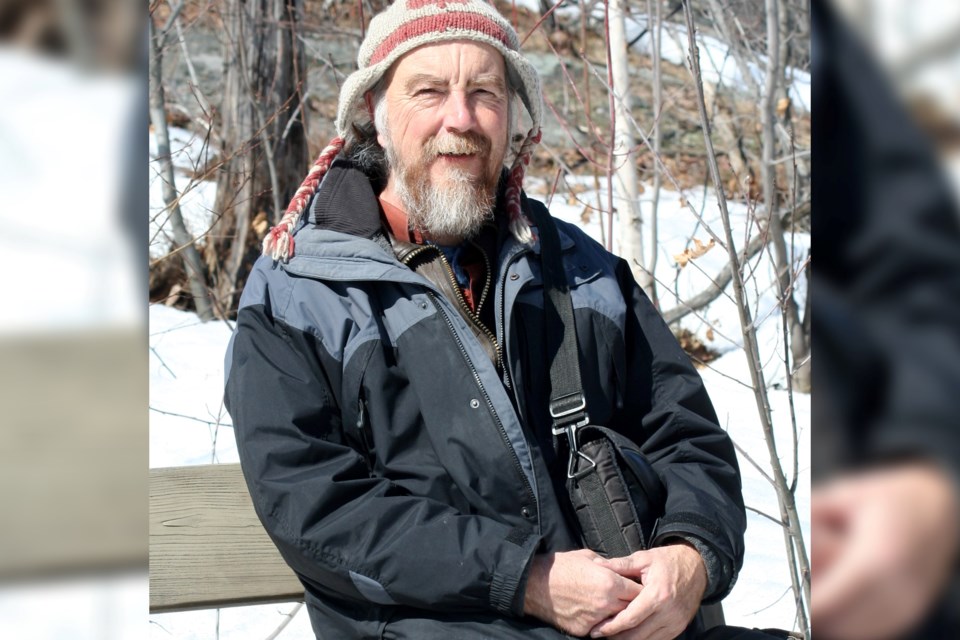Enjoying nature and getting outdoors is something that a lot of Northerners do in various ways. Bird watchers — also known as birders — are among them. In virtually any social group or organization you might come across in the North, you are bound to meet a person who is an avid bird watcher.
That's entirely subjective and anecdotal of course, but retired university biology researcher Chris Blomme of Sudbury would agree.
Blomme said he has been a birder since he was about five years old and he still remembers the first time he took notice of an unusual bird.
"We were living with an elderly couple that were very prone to wildlife and they kept a feeder going, and they showed us what a feeder was. I got to see a creature called the Northern Flicker,” Blomme said. “At that time, it was called the Yellow Shafted Flicker, a type of woodpecker. Very bright yellow feathers, very dynamic when it flies, white rough patch when it flies away from you.
“So it's something as a child, you definitely notice if you were close by. So I guess that's something that would stick in my mind."
Blomme said one of the highlights of bird watching is when he sees and hears a rare bird or a species that he has not seen in a while. One of the benefits of living in Sudbury is that many species come through this region as part of the annual spring and fall migrations. That's not unusual in Canada, but Blomme said it does make it easier for birders to see interesting species.
"You know, the birds move through the areas and we get an opportunity to see them,” he said. “If you wanted a site-specific example, trumpeter swans will show up during the winter locally in Sudbury, and you won't find them almost anywhere else except in southern Ontario in the winter. And that's because there's a small area where there's open water, and they can spend the winter here.”
Blomme said there can be so many things people find interesting and attractive about the hobby, but he believes it keeps him healthy and active.
"If nothing else you keep yourself physically fit, particularly when you're getting caught up in technology, watching TV on the computer and that. If you get into a hobby like this, it doesn't matter what age you are, you can still get out there and go for a walk. It's an excuse to go for a walk. And you can see things that are different every day," Blomme said.
He added that it is not difficult to become a birder. He said there is a Facebook group in Sudbury that has more than a 1,000 members who share photos and stories of their adventures. Blomme said people can start by becoming what he called “backyard birders” — all a person would need is a bird feeder and seeds. People who become more interested might opt to buy binoculars or a fancy camera.
Blomme also revealed that for smartphone users, there is an application that beginner birders would find interesting.
"There's a thing called Merlin now, which you can download on your phone, and it will be able to identify the bird you're looking at immediately if you give it the correct description, or you take a picture of it, and ask Merlin tell you what it is," said Blomme.
The Merlin app is free and was created by the Ornithology Lab of Cornell University in Ithaca, New York.
Blomme added that a lot of Northerners are thrilled every winter when they see the black-capped chickadee. Blomme said these birds show up at a lot of winter feeders and can be picky about the seeds they choose. Blomme said a simple search online will reveal that the birds are able to discern the weight of specific seeds and will know which seeds are empty. He said that means the chickadee doesn't have to waste time and energy opening empty seed shells.
Blomme adds that people who like to spend time outdoors will gradually become better at hearing and identifying different species in the Northern bush.
He said he found it "surprising" that a lot of hikers will distract themselves when they're out in nature.
"So a prime example would be somebody goes for a walk in a bush trail with headphones on and playing music, they're really not aware of what's going on around them. If they wanted to take the time to disconnect the electronics and just listen, you can, over time, identify the calls, the sounds and the actual environment that you're walking through."
Blomme said it creates a whole new sense of enjoyment.
He added that birding also has a significant social aspect because it brings people together to get involved in outdoor hikes and adventure trips. Blomme also said an argument can be made for the pro-environmental aspect since people who enjoy the smaller aspects of nature are also likely to understand the importance of protecting our environment.
Blomme said there is even a competitive aspect to birding in the sense that a lot of people want to be first to see a new species in the spring or to get a great photograph of a rare bird. He also had some advice about that.
If you see a rare bird, by all means try to get a photo, said Blomme. But don't go onto private property or running through someone's backyard.
"Always ask permission," said Blomme.
Len Gillis is a reporter at Sudbury.com. Bold is made possible by our Community Leaders Program.
